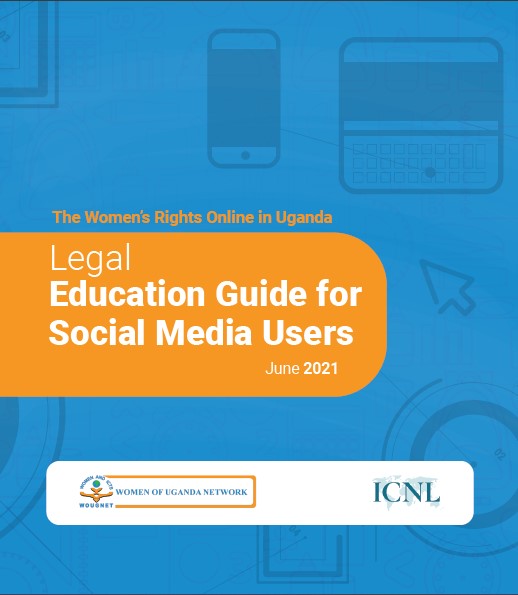- Version
- Download 64
- File Size 3.70 MB
- File Count 1
- Create Date June 16, 2021
- Last Updated May 16, 2023
Legal Education Guide for Social Media Users
Social media denotes computer technologies, internet-based that facilitate, sharing, dissemination, and impartation of information, ideas, and thoughts. The most commonly evident social media activities include video sharing, social networks which keep close in touch, business networks that facilitate business through marketing and sales, photo sharing, blogging, social gaming, reviews, and virtual worlds. Amongst the most common social media sites including; Facebook a social networking site, YouTube, WhatsApp, Facebook, Messenger, WeChat, Twitter, Reddit, Instagram used for images and videos, QQ, QZone, Douyin/Tik Tok, Sino Weibo, Pinterest, and LinkedIn a social networking site. It should be noted that social media by design promotes participation, openness to feedback from users, conversation, the quick formation of communities, and connectedness.
Today, social media has gained relevance with 4.20 billion (53.6% of the global population) users. In Uganda, there were 12.4 million users accessing OTT in September 2020. This partly represents the official figures of people accessing and using social media in the country. This, however, does not cater to persons using Virtual Private Network (VPN) services. Hence, social media is used for numerous reasons including; individual expression, communication, and dissemination of ideas, solicitations of support, research, trade, and business, political opposition, and criticism.10 Notably, some of the roles of social media such as political solicitation and support, mobilization of political opposition, criticism, and information sharing have pushed governments to strategically control and regulate the use and access of social media. The question of why there is increased control by governments has been widely and severally sought after with answers readily available. In this guide, Uganda’s legal and regulatory framework is explored. It highlights the laws, regulations, and institutions that control social media based on women’s rights online. It also briefly highlights the reasons fronted for social media regulation and control.

